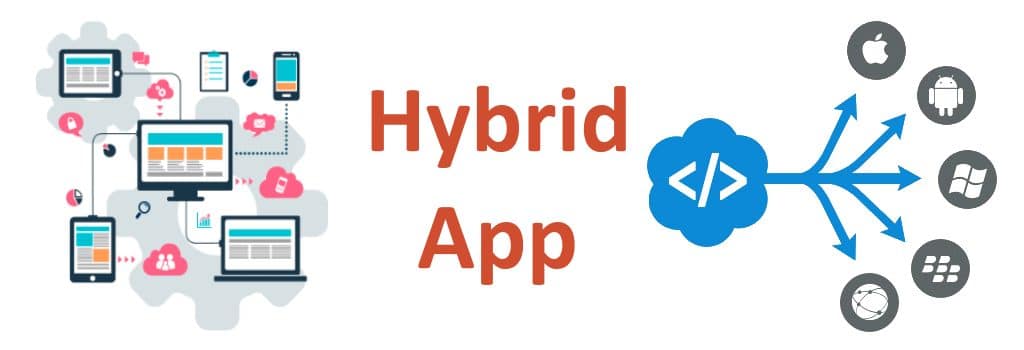Wondering how to develop a mobile app? And which one might just be better?
Turn your heads towards Ionic, which is defined as ‘a complete open-source Software Development Kit (SDK) for hybrid mobile app development’. Through Ionic, developers can build apps, and accordingly, modify them for Android or iOS platforms.
Ripples Made in the Recent Past
Going back to 2010, language options developers considered to develop a mobile app were PhoneGap and Titanium. While the former made use of HTML, CSS, and JavaScript in custom app development, Titanium was the preferred option to build native applications using JavaScript. However, Titanium didn’t help much in developing custom applications. Post the phase of PhoneGap and Titanium, Objective-C made its foray and helped in hybrid mobile app development.
Birth of Ionic
With technological advancement, Ionic has emerged as the key language that helps to build hybrid apps. It includes technologies such as ‘Cordova, open-sourced component of the PhoneGap platform, Sass, and AngularJS’. The key benefit it offers is that it allows creation of cross-platform applications. This indicates that one can write the code once, which can be readily deployed across any platform – be it iOS, Android or Windows.
Gradually it has been accepted in the developer community that hybrid apps are way better than native apps in terms of the unique benefits it offers.
Benefits to Look for:
No Need for Employing Own UI Code
Ionic provides a much intuitive user interface (UI) compared to PhoneGap which provides a mere blank look. The engaging UI components of Ionic help in app customization by using the extremely popular CSS extension language, commonly known as Sass. The choices of the UI framework were narrowed down when hybrid apps were built with PhoneGap or Cordova. That has been effectively addressed with Ionic.
Now, with Ionic, the developer can very quickly get to building the app, abiding by the business logic of the app, without wasting much time and resources to decide which UI kit to use.
Performance of Web Views
Ionic lays high importance to maintain the performance of web views. The scrolling web views are explicitly seamless and smooth, a scenario which was not possible before. Generally, web views in applications were not at par with the performance of web browsers. But with technology evolution, SDKs used to build applications were made more proficient to ensure seamless web views.
Ionic’s Immense Potential
With the use of AngularJS and Sass, Ionic lessens the cognitive overhead to become fully functional. Version 2.0 is expected to be released soon, one which will offer support for Angular 2.0 and TypeScript. So, just opt for Ionic, and rest of the advantages are ought to follow.
Summing it Up
Before knowing the benefits of hybrid apps, native apps were the best bait. With Ionic in place, developers are now more focused towards hybrid mobile app development. HTML, CSS, and JavaScript will survive in the long-term. New/ hybrid browsers have always been compatible, which similarly doesn’t hold true for native SDKs.
Very recently, iOS had modified the manner in which fonts are programmatically used, for calculating the visible areas of your views. A massive manual task, this entire effort could have been avoided if there was an HTML, CSS and JavaScript app. The layer by layer tasking could have been easily avoided.
Call to Action
Have Ionic placed an ion in your mind by the end of this discussion? Consider building an app with Ionic and see the momentous benefits by yourself. Hybrid apps have a long way to go. Take on the market before competition sets in. There is no time for bad user experiences. So, use the advantages of hybrid mobile app development to create satisfied customer experiences.
- What Is Big Data Visualization? - January 22, 2021
- Five Benefits of Big Data Analytics for E-commerce - July 9, 2020
- Google Data Studio Vs. Tableau: Which One is More Suitable for Your Business? - June 25, 2020

